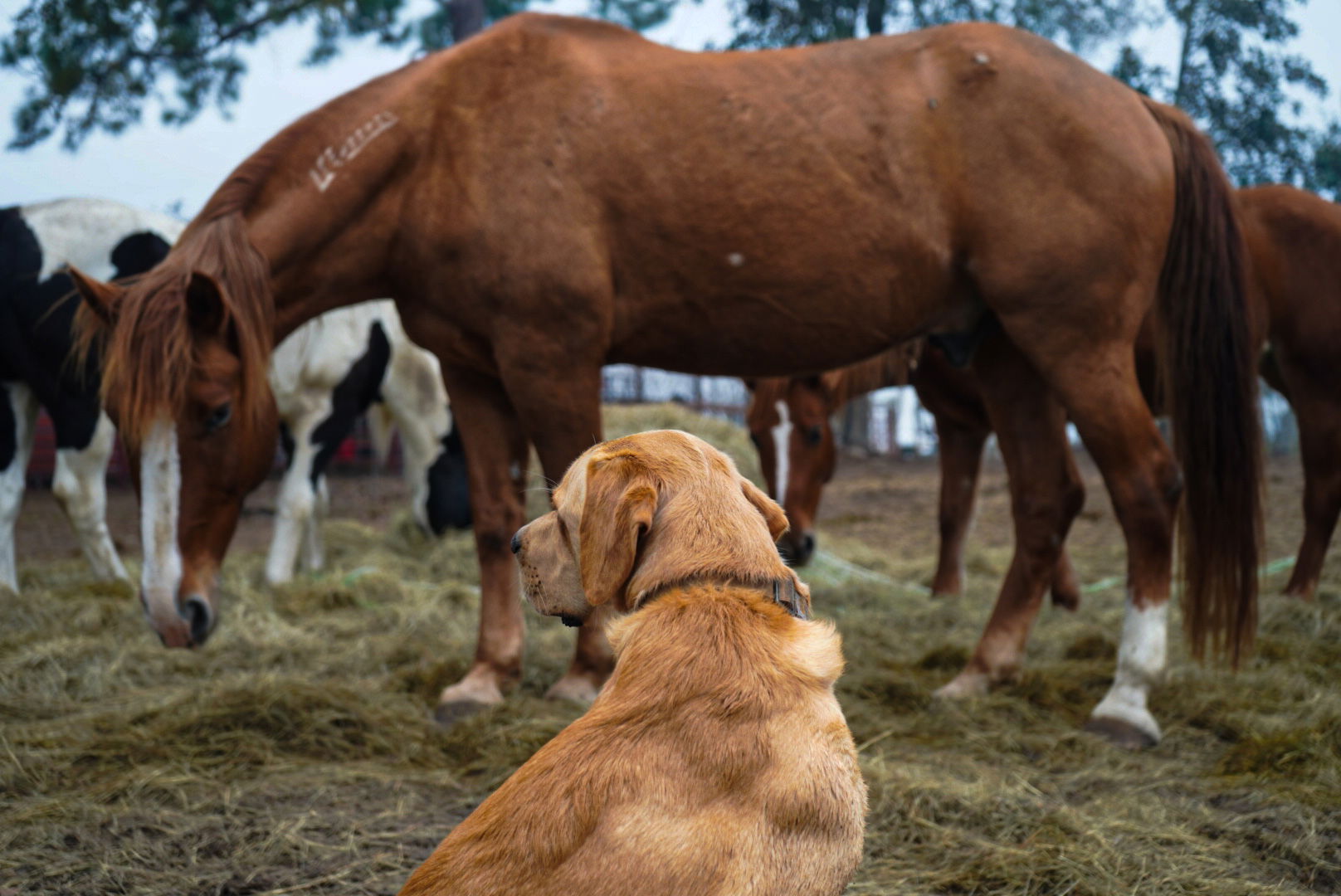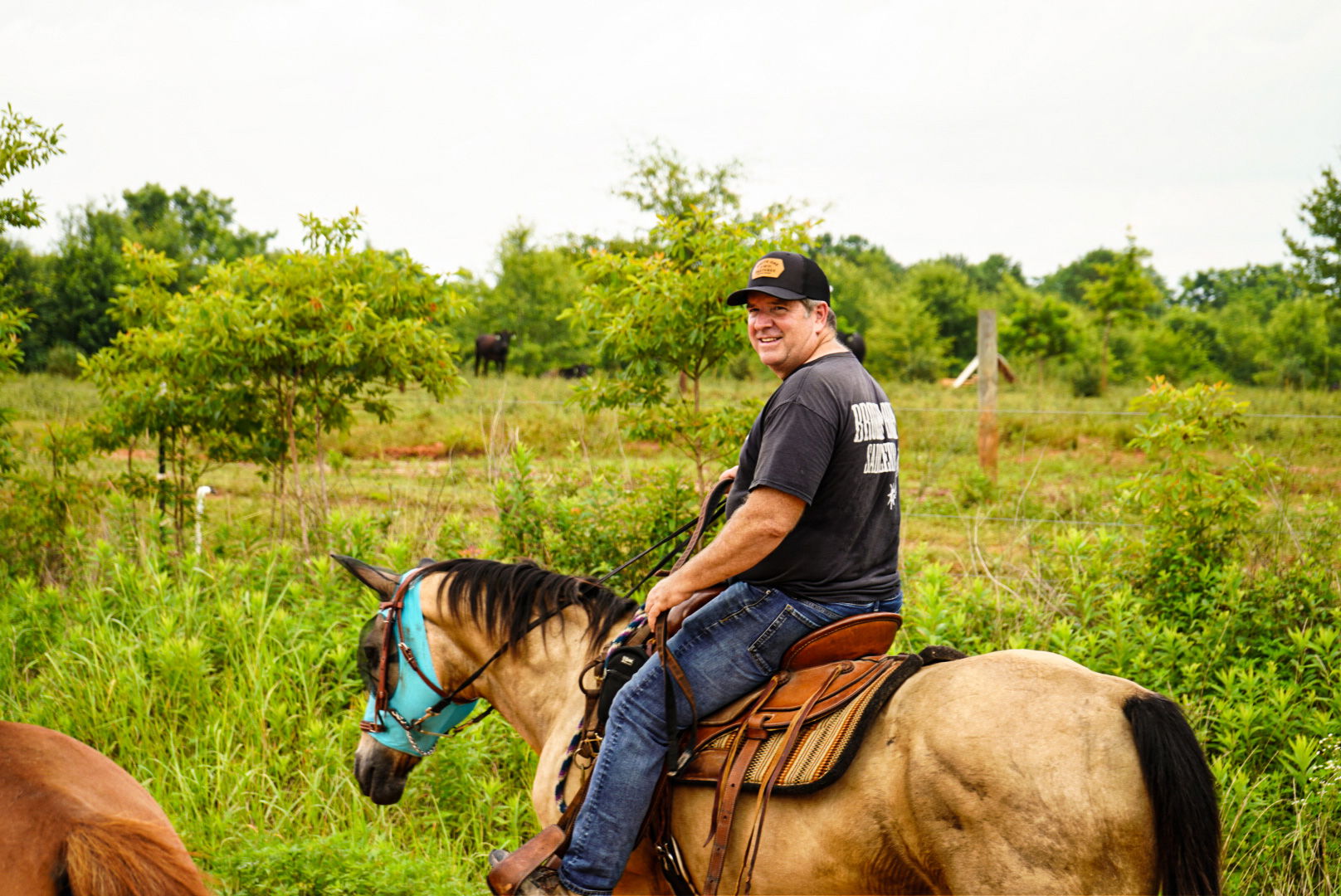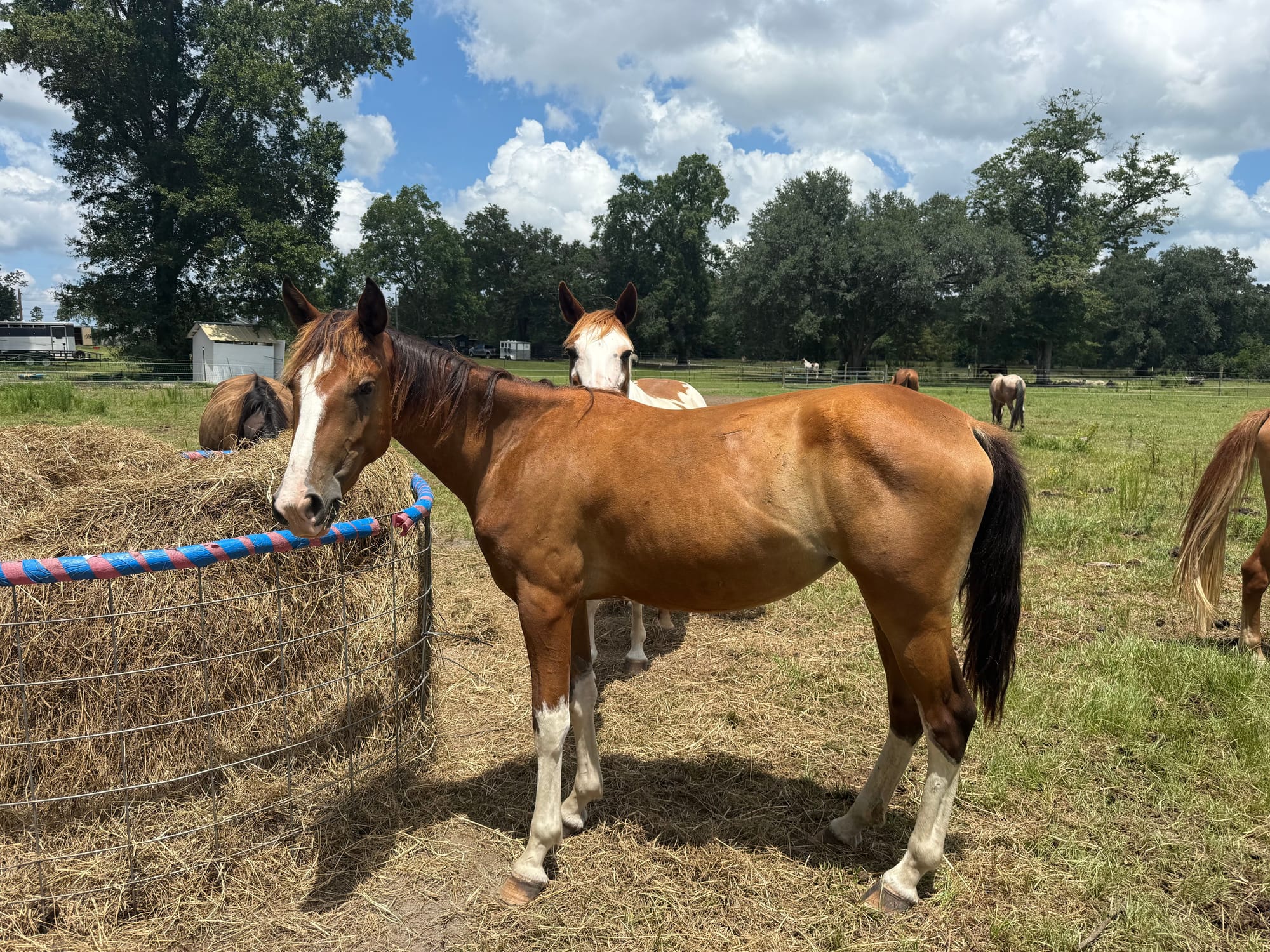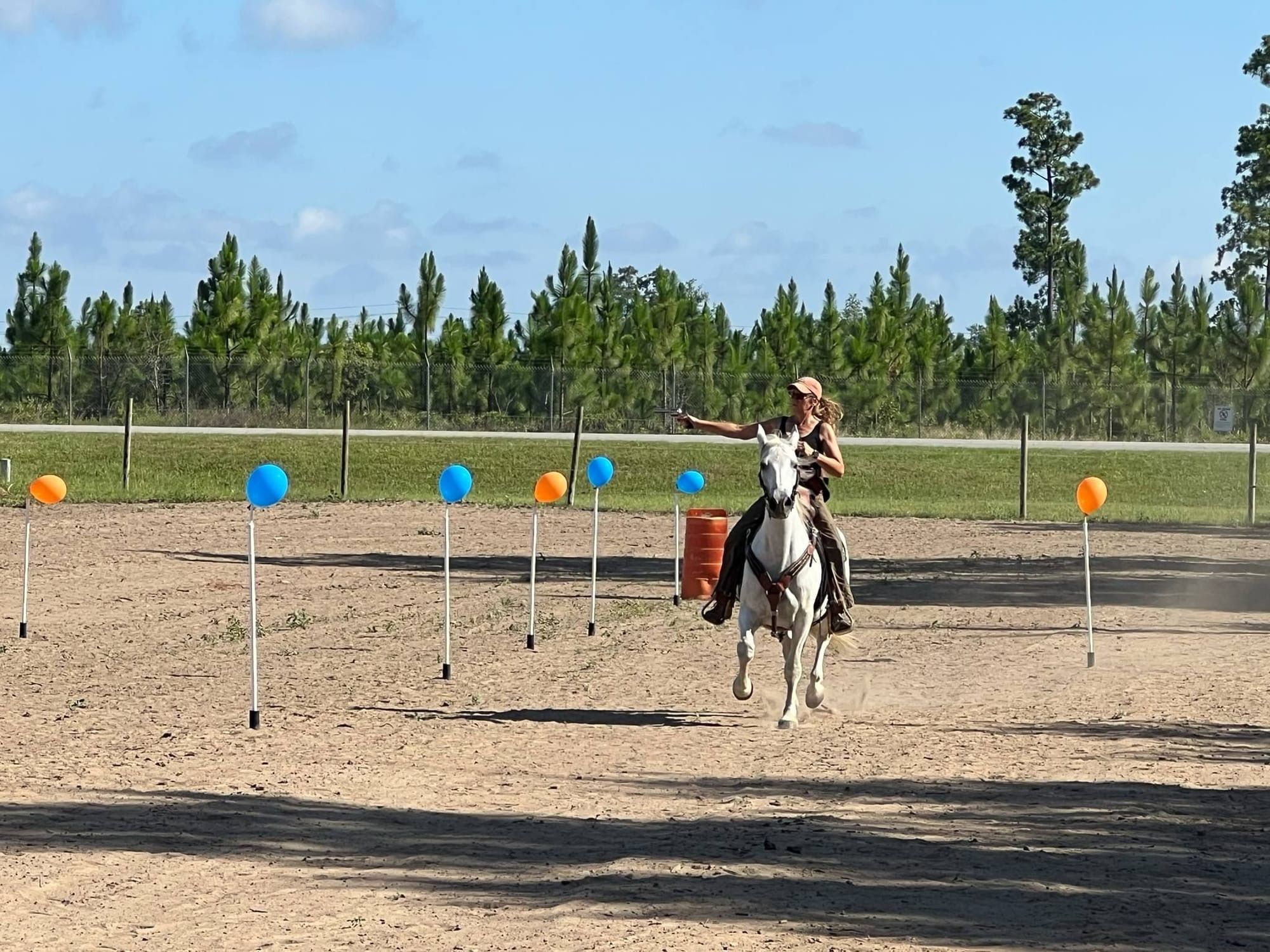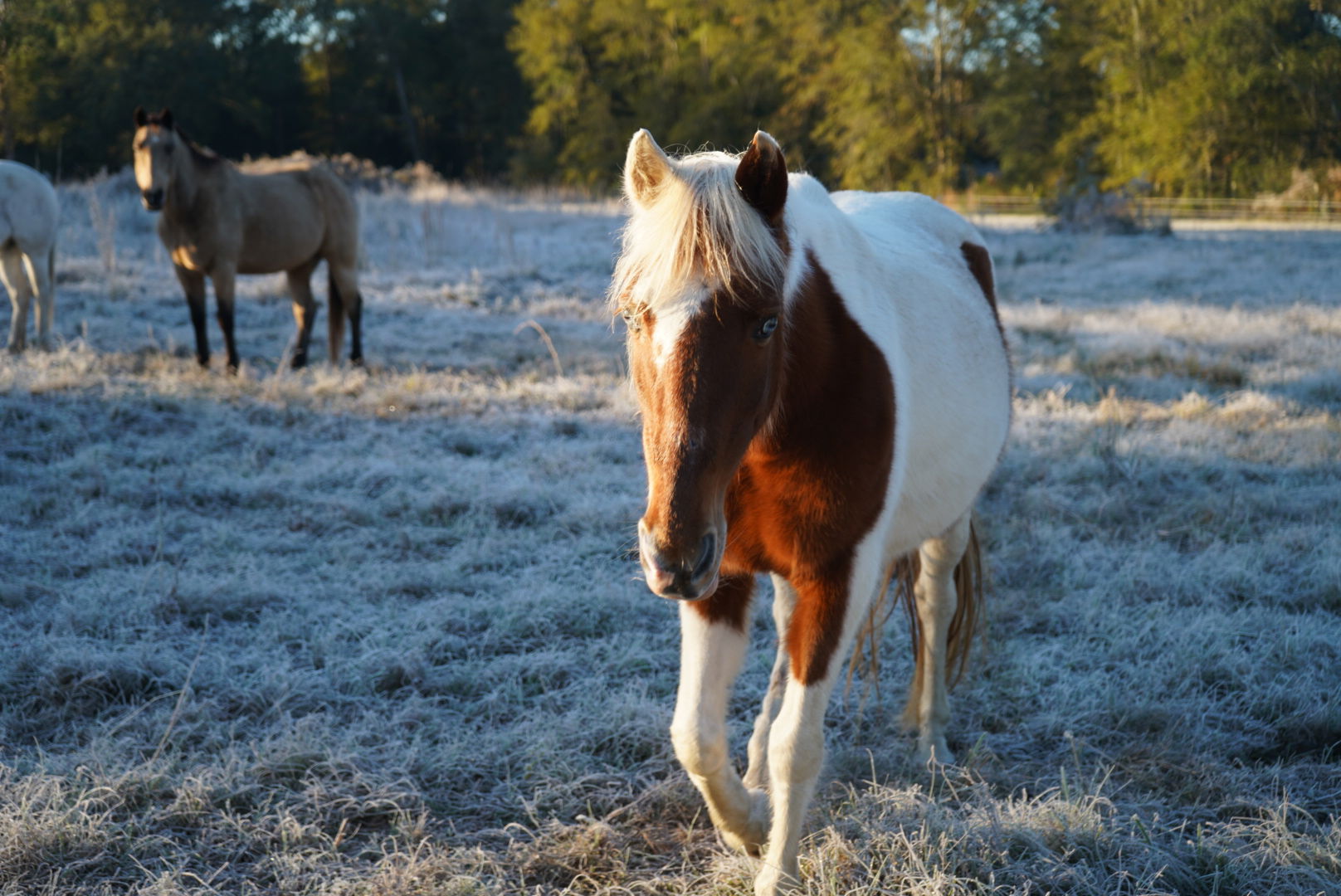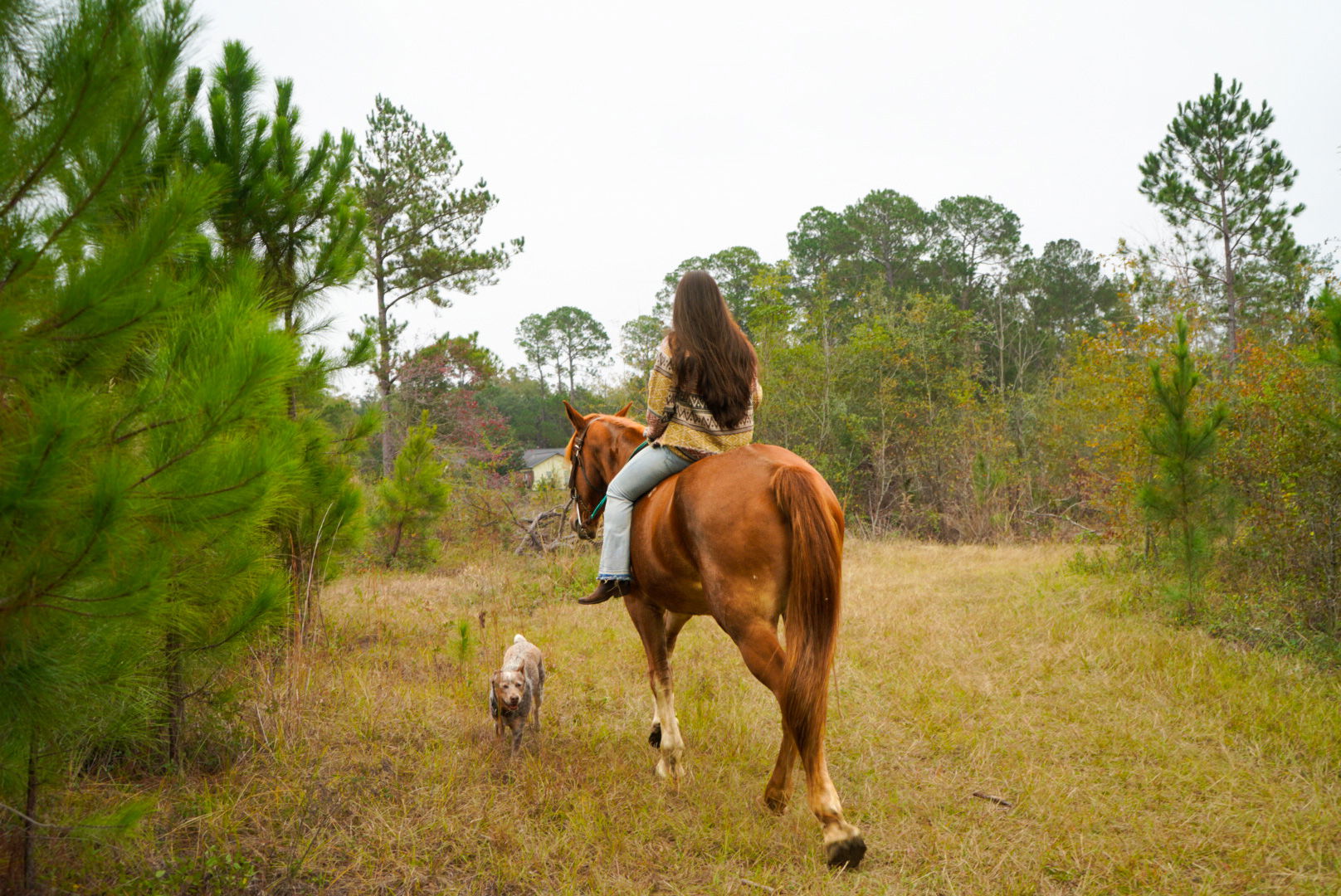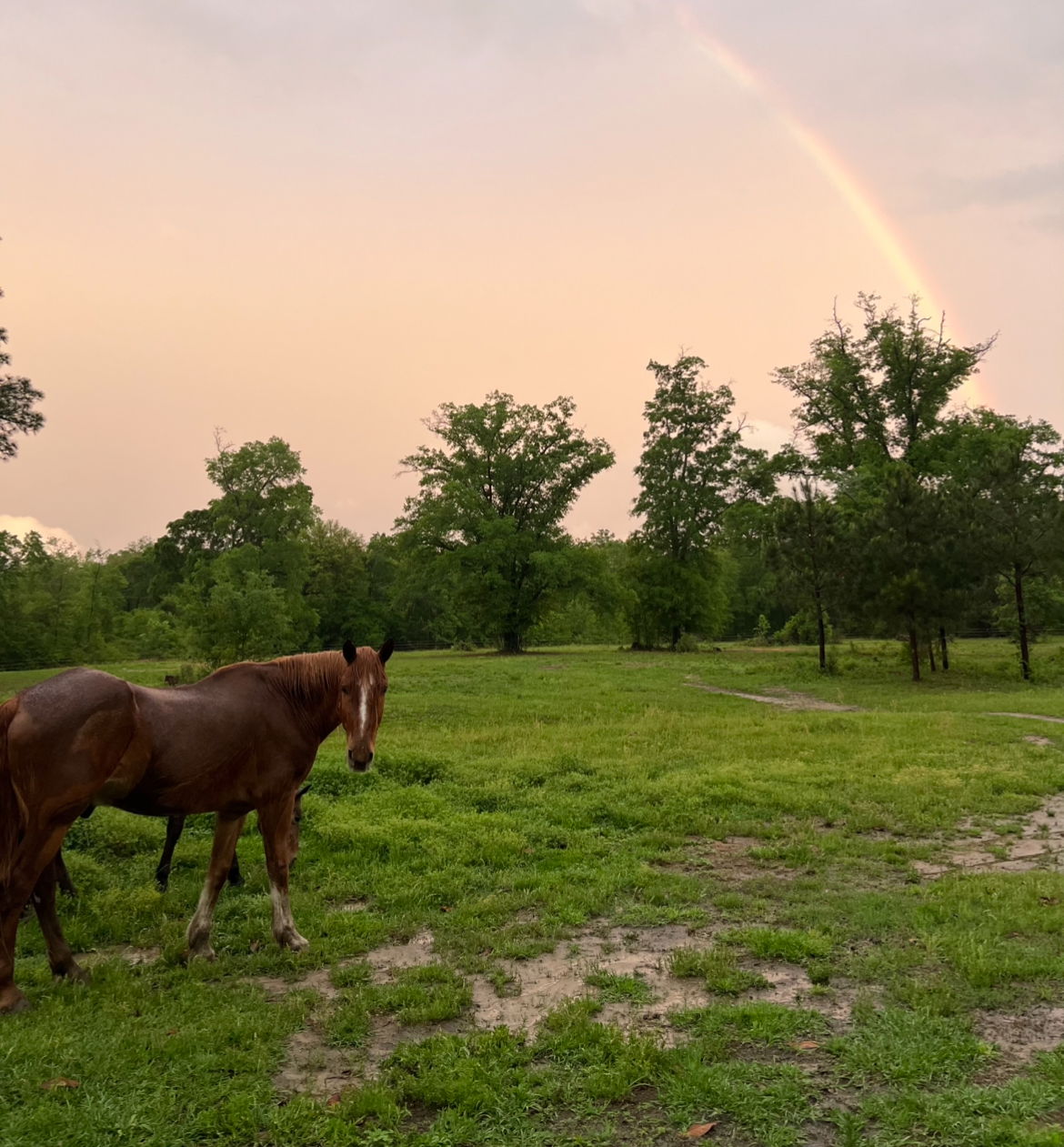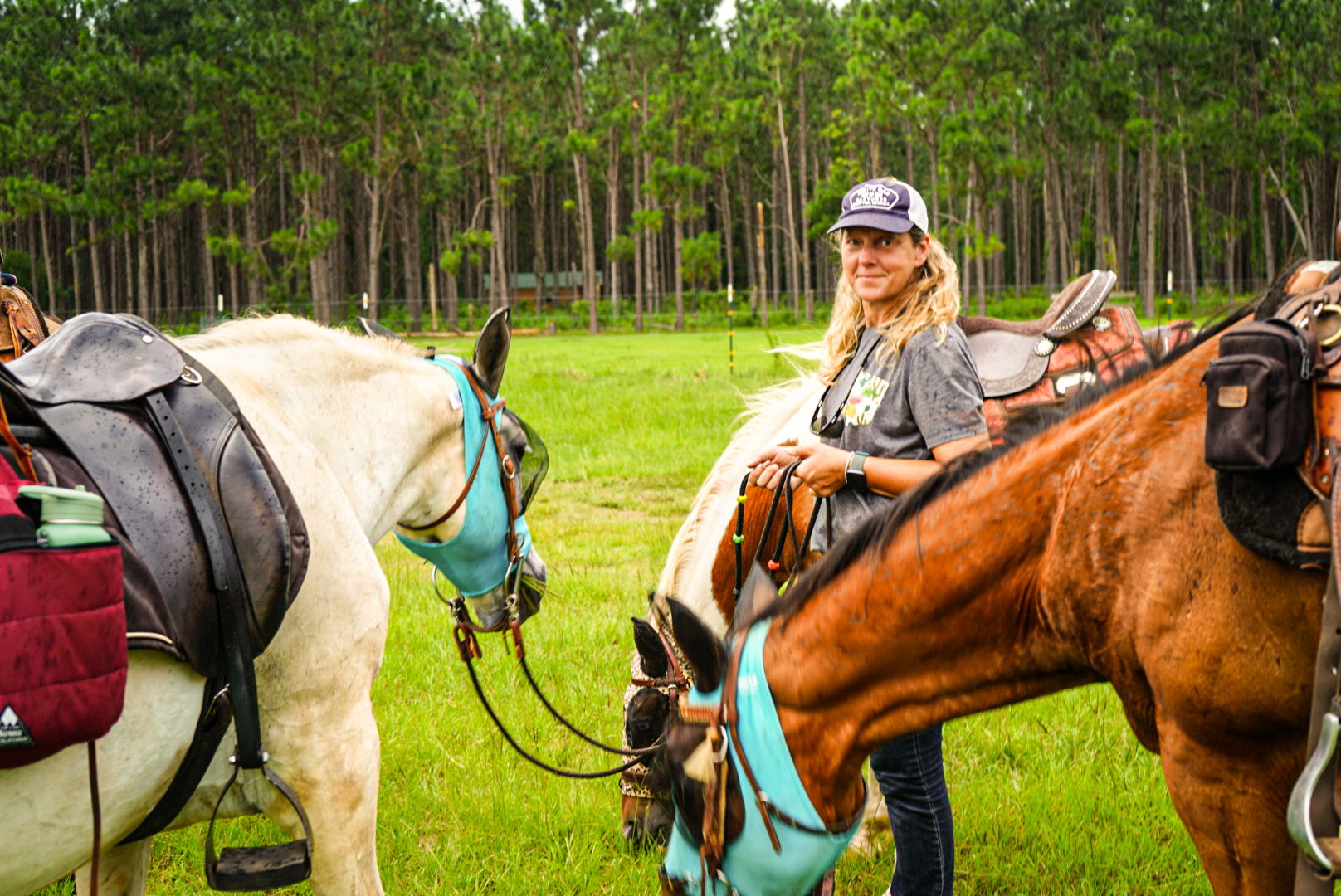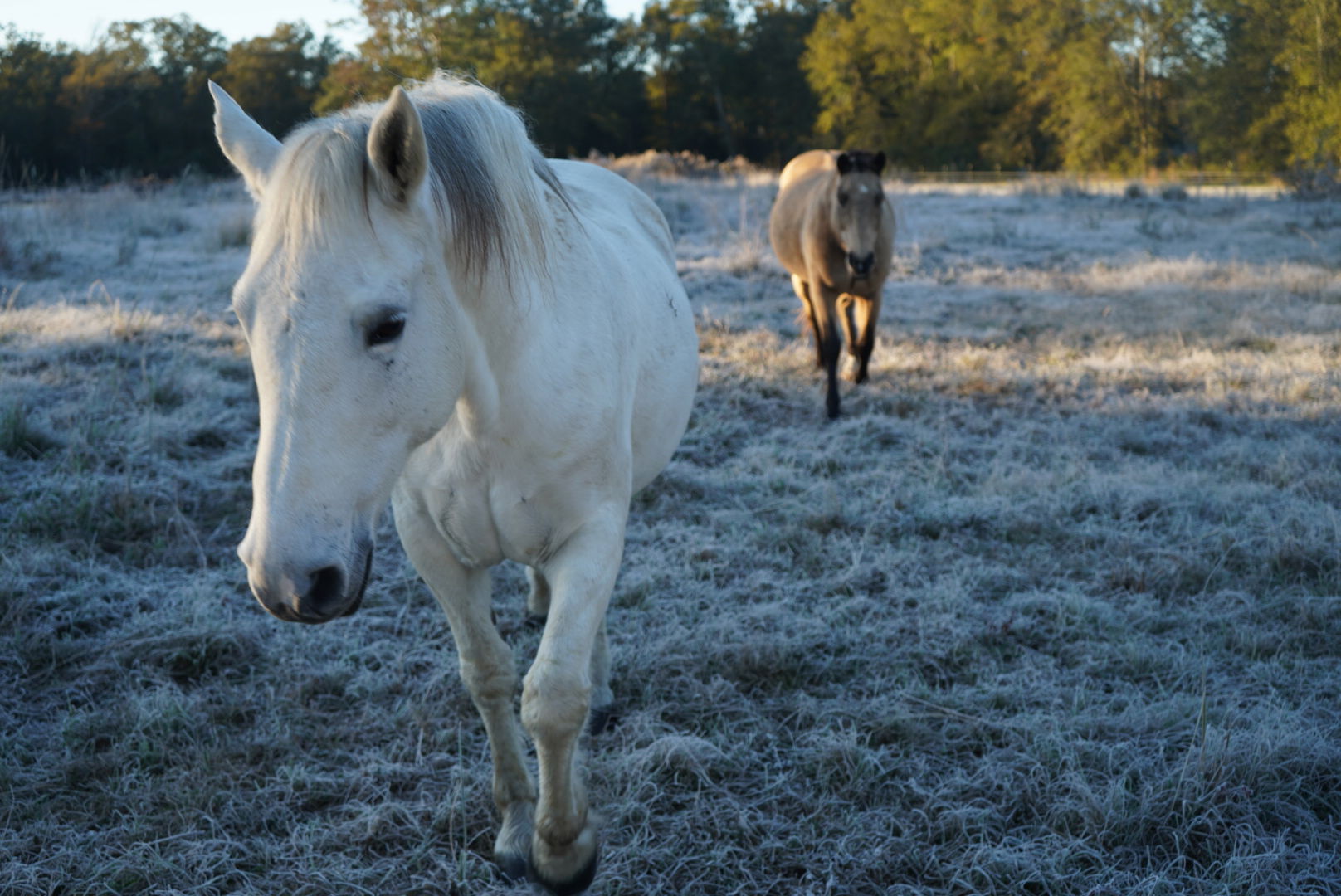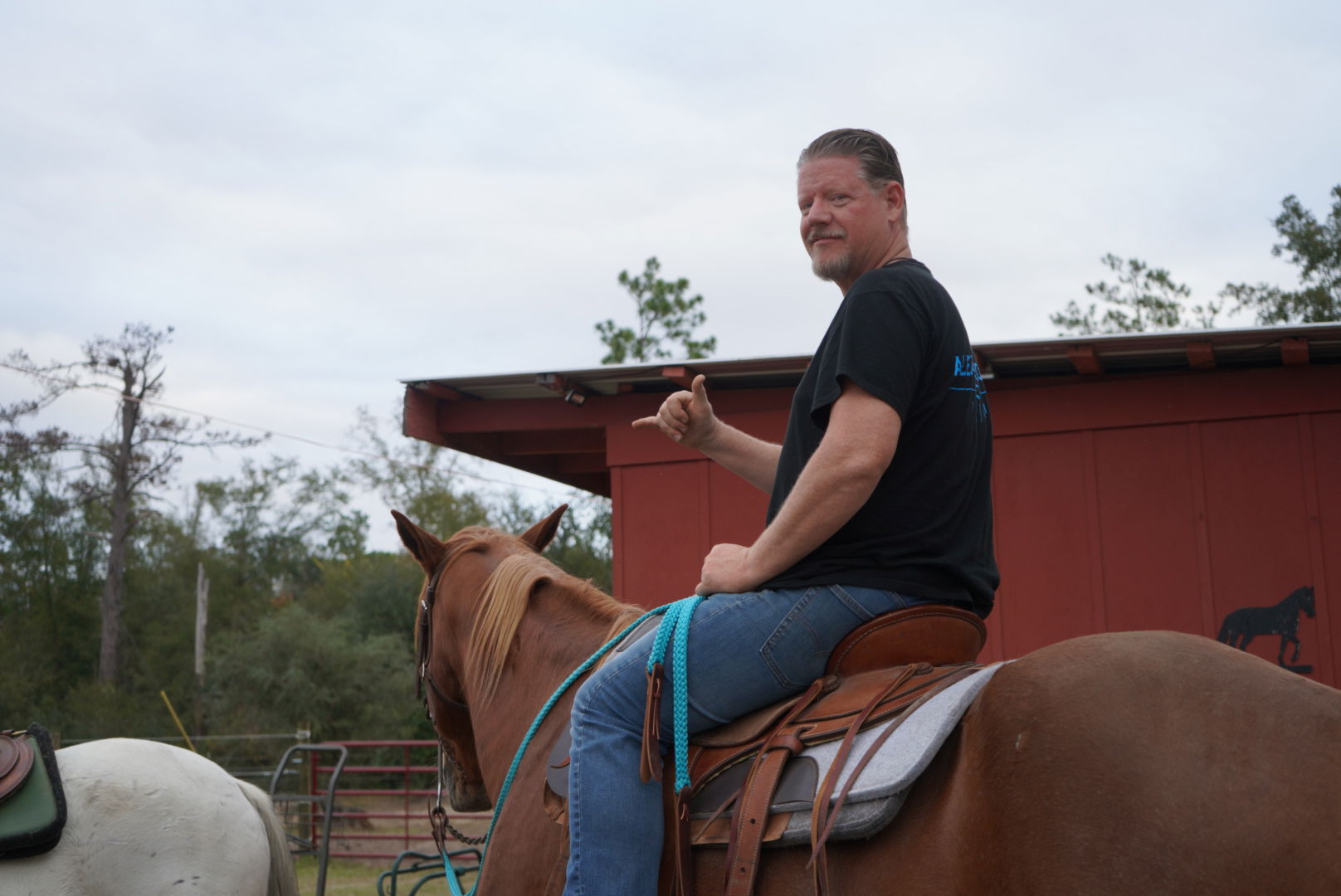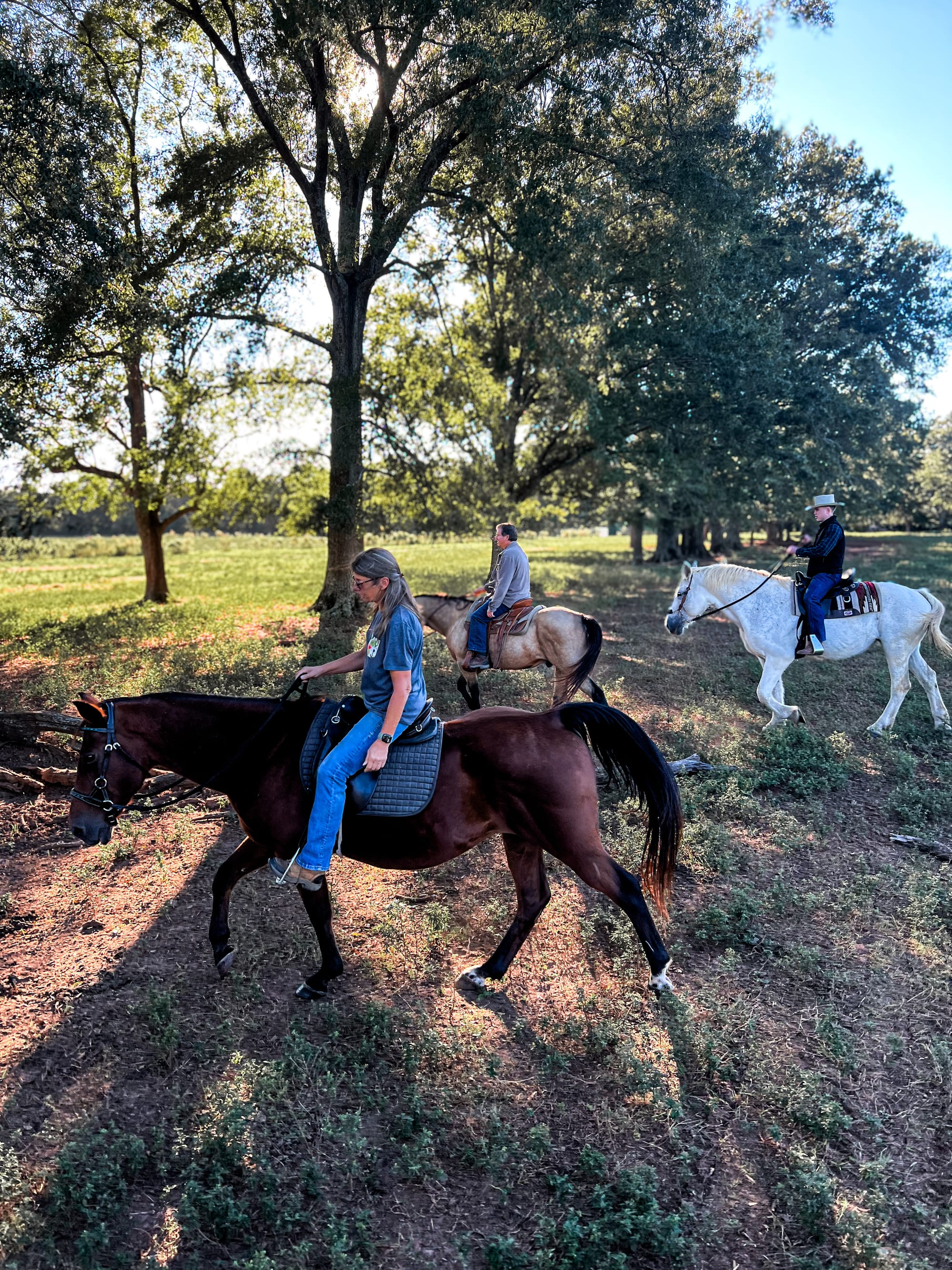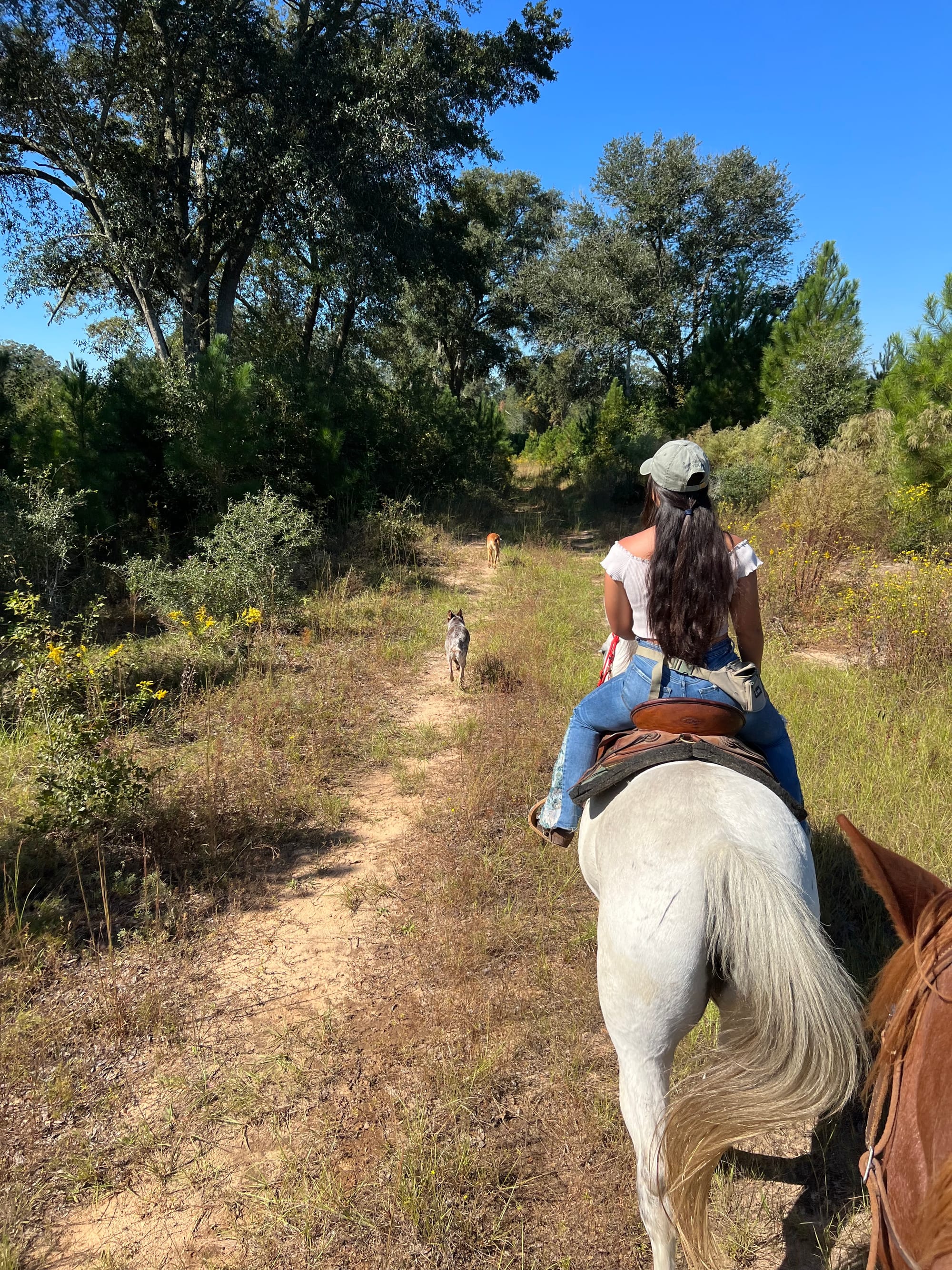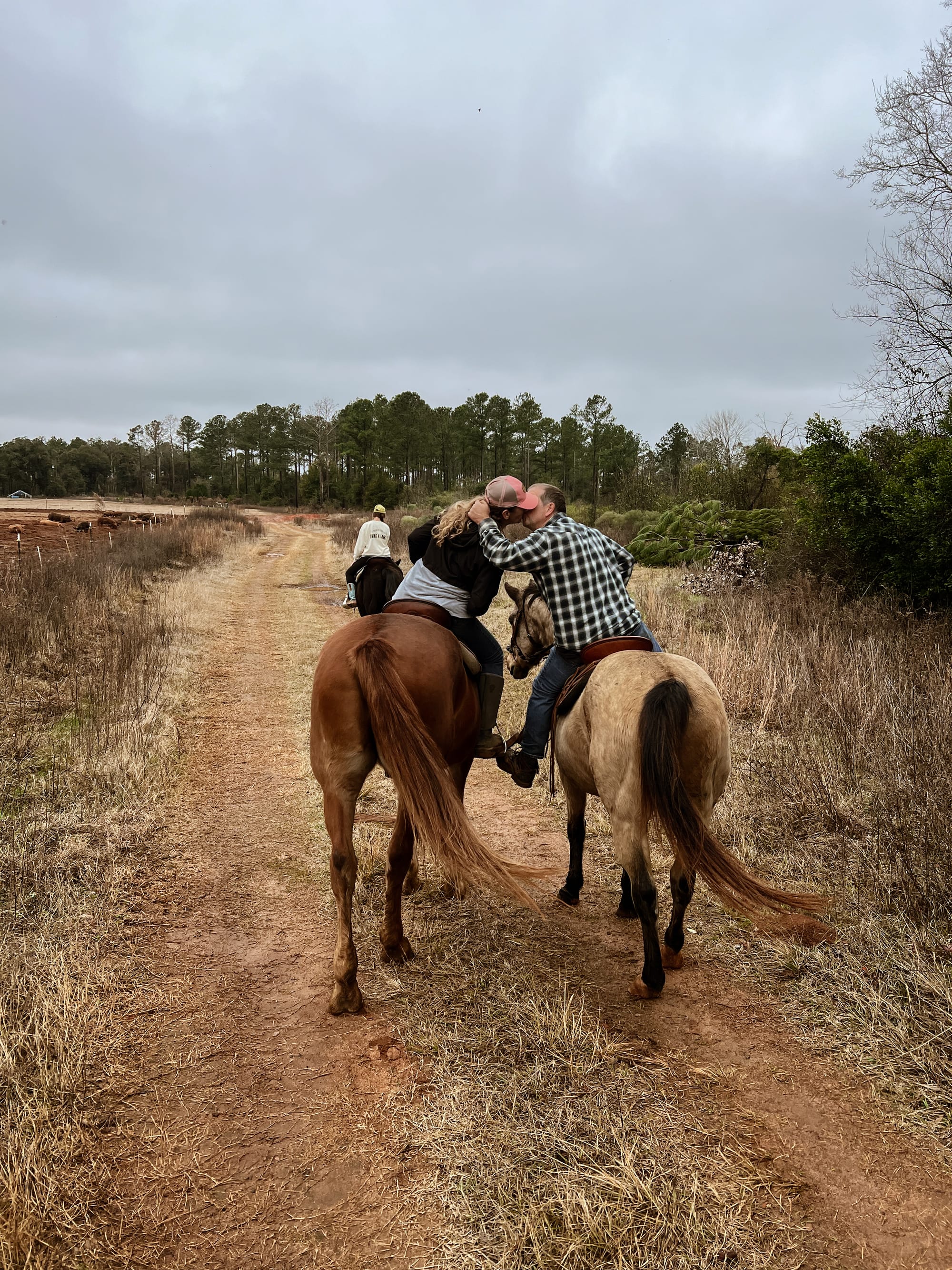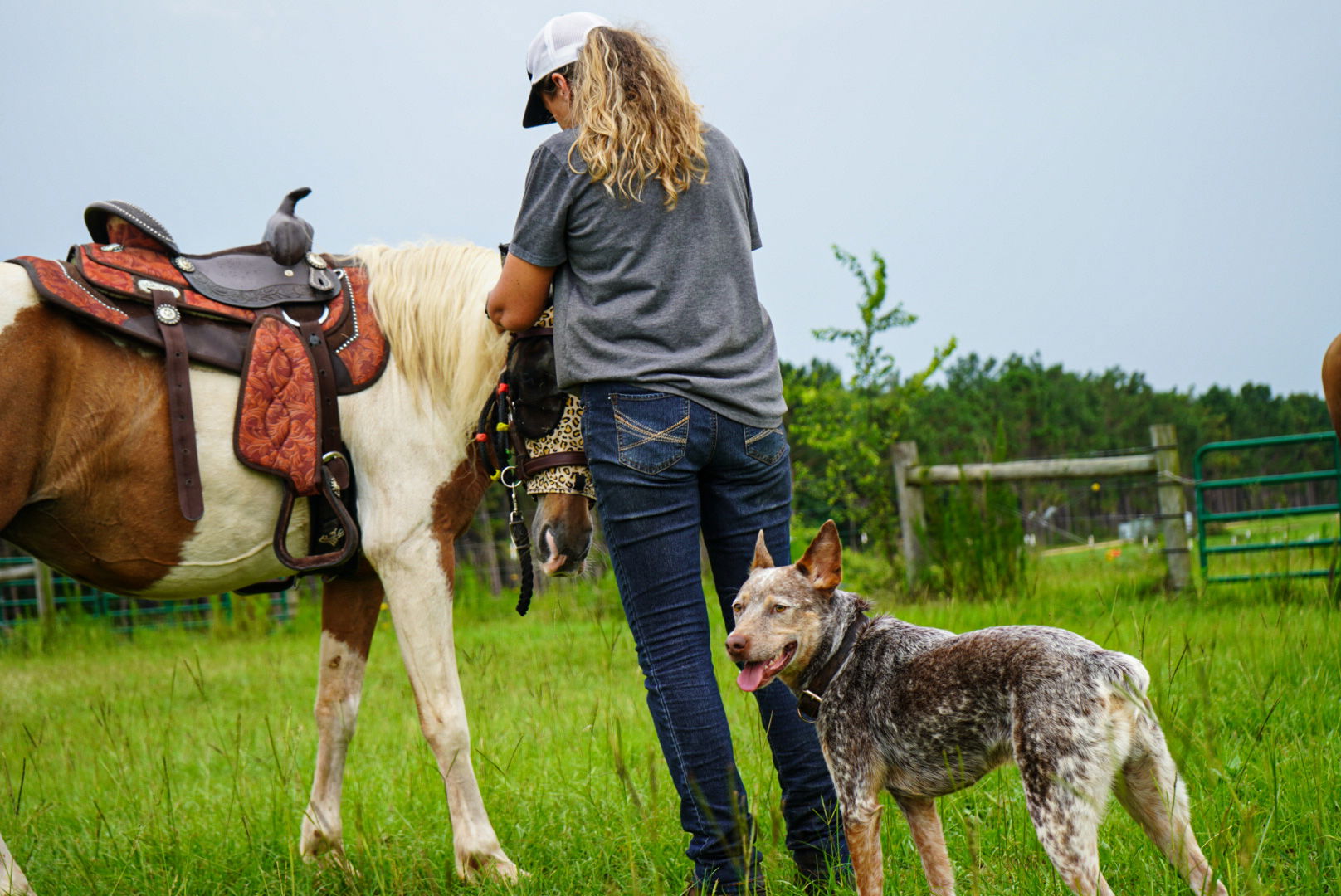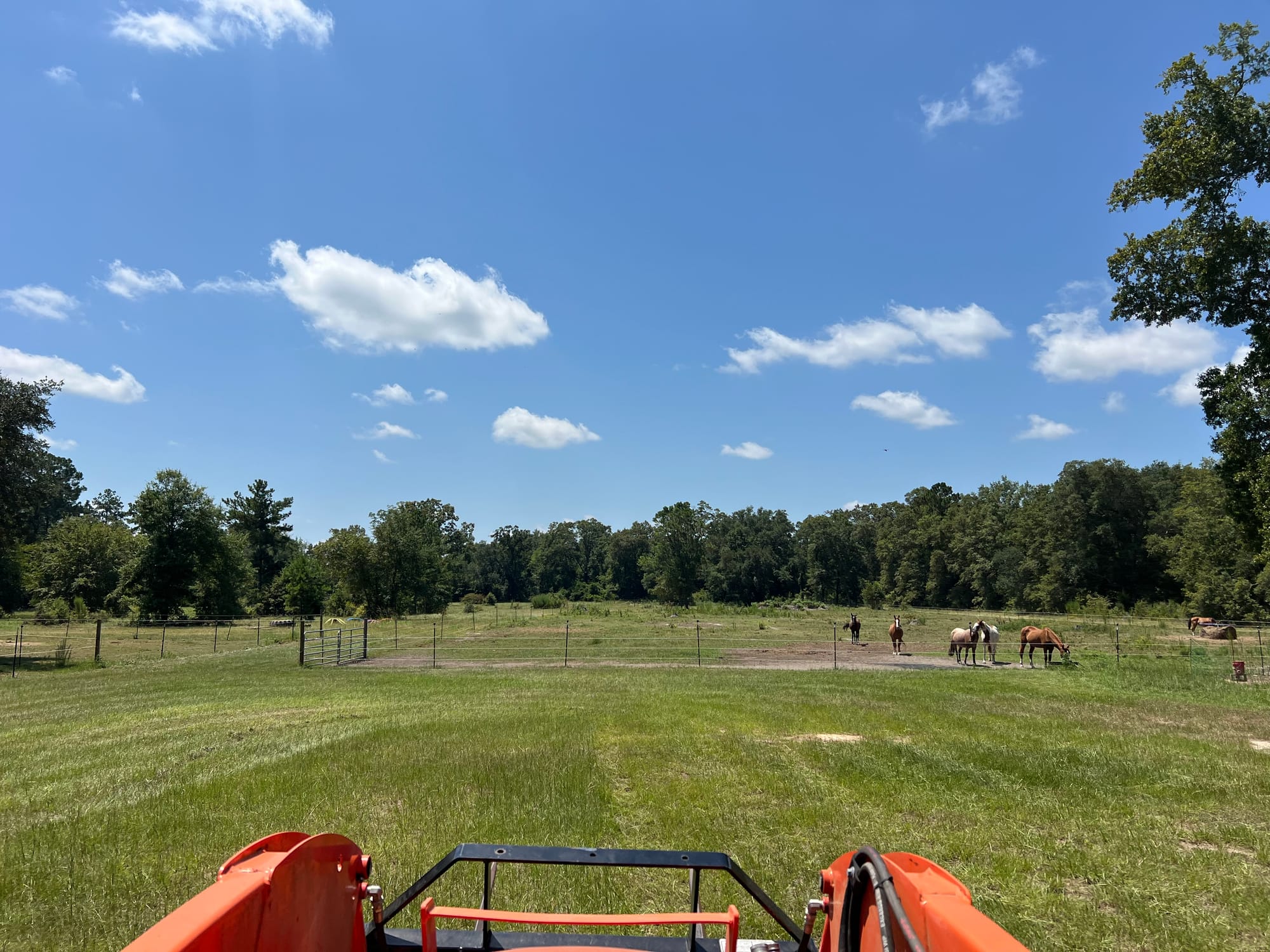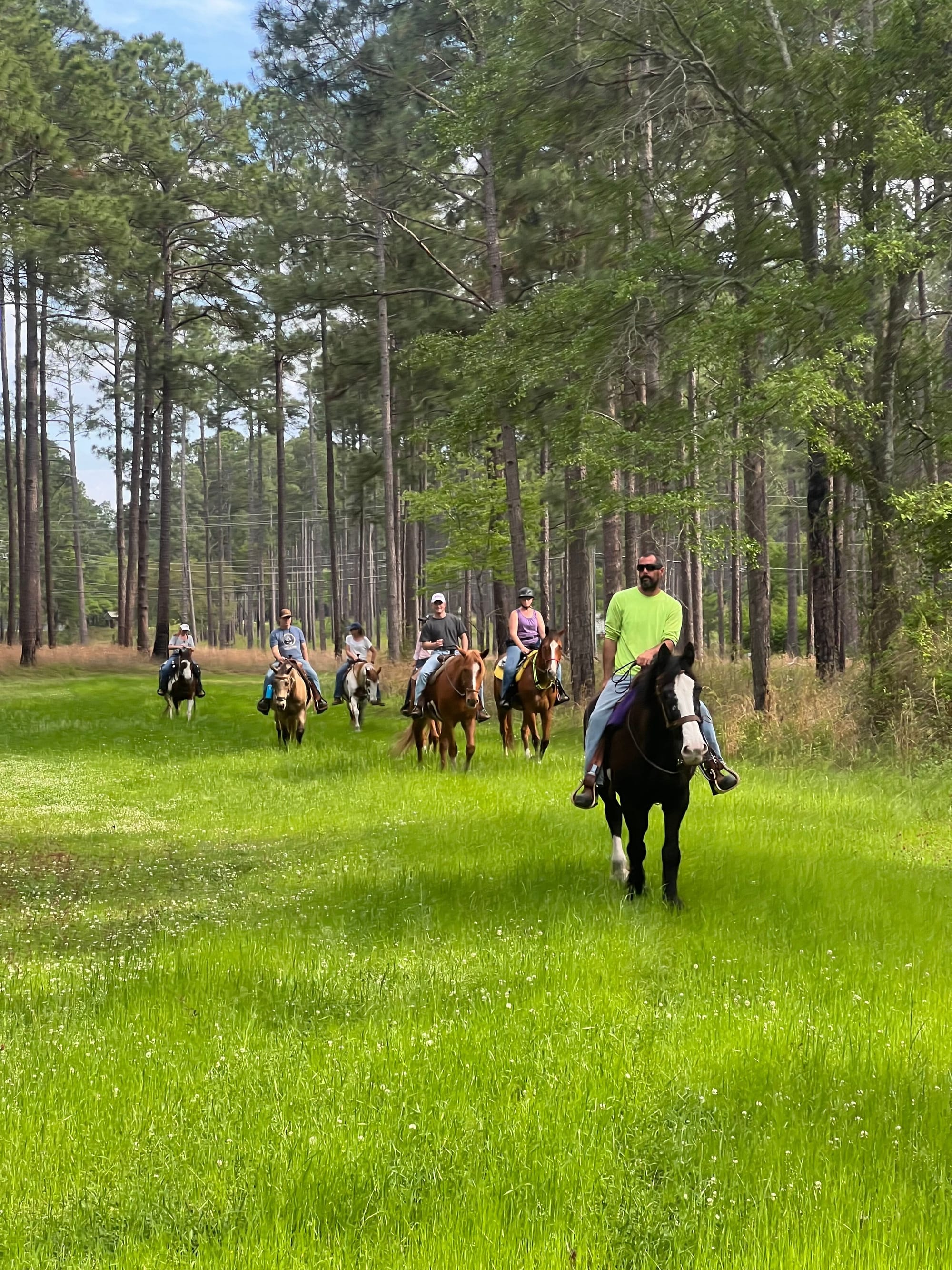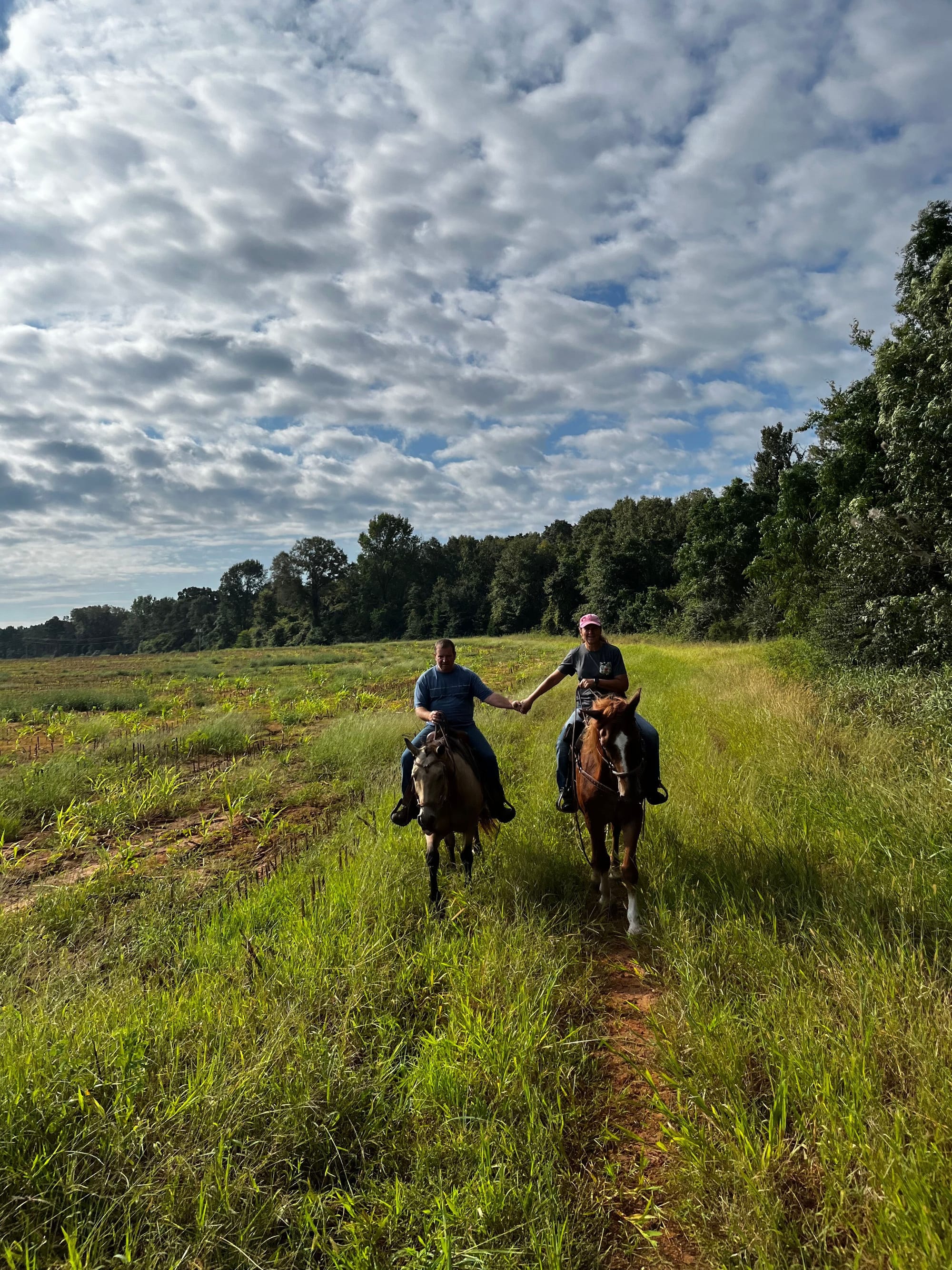Boarding
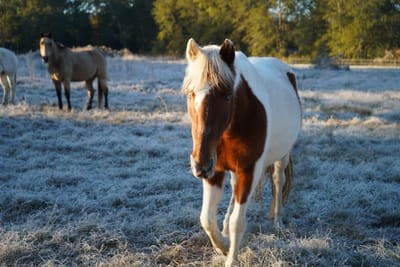
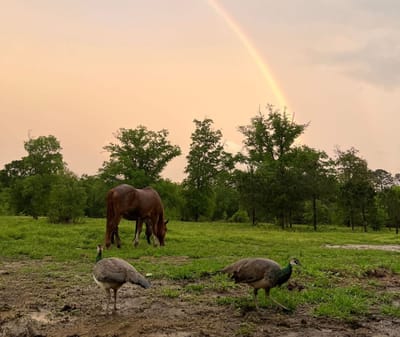
Horses are social, nomadic animals that prefer to live and move in groups over large open areas so they can flee from danger. They naturally partake in mutual grooming as a means of bonding and to develop a herd hierarchy (pecking order).
In today's world, it is nearly impossible to provide this type of environment for the domesticated horse, but Ride and Roam prides itself in achieving this standard.
The Animal Welfare Act, enacted in the United Kingdom, states all animals are entitled to a minimum level of care to ensure their well-being. This Act is outlined by the Five Freedoms of animal welfare:
1. Freedom from hunger and thirst
2. Freedom from discomfort
3. Freedom from pain, injury, or disease
4. Freedom to express normal behavior
5. Freedom from fear and distress
These standards set a clear foundation, encouraging the relationship between Owner, horse, and Care Provider to become symbiotic and mutually beneficial. It is the foundation on which I have chosen to operate Ride and Roam.
PASTURE BOARDING STARTS AT $350 A MONTH AND INCLUDES:
- free choice of pasture grass and hay
- I will feed owner-supplied supplements
- I will blanket if needed and put on/take off fly masks
- I will hold for the farrier and veterinarian
ADD-ONS:
- Trailer Parking for 15.00 a month
- Additional fee if you prefer I feed your horse the same supplements I feed mine
- Additional fee for haul to and from shows
HOW RIDE AND ROAM IMPLEMENTS FIVE FREEDOMS:
1. Freedom from hunger and thirst: by providing enough fresh water and the right type and amount of food to keep them fit.
2. Freedom from discomfort: by ensuring that animals have the right type of environment, including shelter and somewhere comfortable to rest.
3. Freedom from pain, injury and disease: by implementing illness and injury prevention measures and by making sure animals are diagnosed and treated rapidly in any case of illness or injury. Animals will have access to veterinary care when needed.
4. Freedom from fear and distress: by making sure their conditions and treatment avoid mental suffering.
5. Freedom to behave normally: by making sure animals have enough space, proper facilities and the company of other animals of their own kind.
A MORE IN-DEPTH OVERVIEW OF WHAT RIDE AND ROAM OFFERS:
1. Freedom from hunger and thirst
Horses have evolved as trickle feeders, designed to be chewing/occupied by feed for a large portion of their day (16-18 hours). Their digestive systems are primarily designed to digest fiber and, therefore, forage (hay/haylage/grass) should represent the majority of their diet.
Wild horses spend about 60 percent of their time eating. This compares to competition horses kept in individual stables, where only 15 percent of their time is spent eating. Although these horses usually receive good nutrition, their eating is done over 4-5 hours; a third of the time spent by wild horses who are free to graze at will. Ideally, domesticated horses should have free access to fiber to allow them to eat for at least 16 hours per day and should always have clean drinking water.
AT RIDE AND ROAM, HORSES HAVE FREE CHOICE OF HAY, WATER THAT IS FLOWING, FRESH, AND CLEAN, AND PLENTY OF SPACE WHERE THEY CAN CHOOSE THEIR BUDDIE.
2. Freedom from discomfort
Horses evolved as a social species living in open plains, where running away was their primary method of escape from predators. Today, horses still possess an inherent aversion to isolation and confinement.
Research has shown that horses with free access to both pasture and to box stalls with bedding, hay, and water, prefer pasture even during poor weather as long as some grass is available. Therefore, where possible, it is ideal to allow horses plenty of time in the field.
While horses do need some protection from the elements - shelter, trees, barns – they do not require warm housing and have been shown to be able to comfortably tolerate low temperatures. Horses naturally insulate themselves with their winter coats; however, horses with clipped coats may need rugs to maintain a comfortable body temperature. Anything that a horse wears, be it a rug, headcollar, bridle or saddle, needs to fit correctly and be cleaned regularly.
Horses that are in work should only be asked to do what they are capable of and what they enjoy.
AT RIDE AND ROAM, YOUR HORSE WILL HAVE MOST OF THEIR DAY TO BE A HORSE AND TO CHOOSE THEIR OWN PATH. WE WILL ALSO BLANKET AND PUT ON/TAKE OFF FLY MASKS WHEN NEEDED. WHEN A HORSE IS HAPPY….SO IS THE OWNER!
3. Freedom from pain, injury and disease
It is important to make sure all reasonable steps are taken to prevent ill-health and to seek prompt veterinary care in the event of illness or injury.
A preventative health care plan should be implemented, which should include worming, vaccinations, and annual dentals. Your vet will be able to discuss an appropriate plan for your horse.
AT RIDE AND ROAM, I WORK WITH SEVERAL LOCAL EQUINE VETERINARIANS AND I HAVE OVER 20 YEARS AS A VETERINARY TECHNICIAN. TO PREVENT INJURIES, WE REGULARLY INSPECT STABLING/FENCING AND QUICKLY REPAIR ANY PROBLEM AREAS.
4. Freedom from distress and fear
Horses are flight animals and therefore are naturally fairly nervous, which can make them sensitive to handling. It is important to build up a trusting relationship with your horse.
Furthermore, horses are sociable animals and confining them to individual stables or paddocks may be insufficient to meet their social and mental needs. Distress may result from lack of social interaction and space. Turning horses out regularly and in groups can help to alleviate this problem.
AT RIDE AND ROAM, THE HORSES IN MY CARE ARE IN HERDS! WHERE THEY CAN CHOOSE THEIR BUDDIES AND HAVE A SOCIAL LIFE!
5. Freedom to express natural behavior
Chronic frustration from isolation, lack of social contact, lack of environmental enrichment and/or lack of stimulation can result in abnormal or stereotypic behaviours (‘stereotypies’). Examples of stereotypies include crib biting, weaving, wind sucking, head tossing and head nodding. Unfortunately, some stereotypies become learned behaviours that cannot be resolved, even after the horse has been removed from the environment that initially triggered the behaviour (e.g. wind sucking).
AT RIDE AND ROAM, I TRY TO MAKE THE ENVIRONMENT AS NATURAL AS POSSIBLE FOR YOUR HORSE BY ENSURING THEY HAVE AT LEAST ONE FRIEND TO INTERACT WITH AND ROOM TO ROAM AND PLAY AND MOVE IN ALL THEIR GAITS!
Horsemanship Lessons
Ride And Roam emerged of the lockdowns of COVID. In 2020, I was in Southern California and the pandemic brought on a whole new meaning to isolation, creating very little opportunity for families to enjoy any type of activities or being outside. At the time, my daughter was finishing her last month in college and had a professor with 2 small kids. She asked me if they could just come over and ROAM around, pet some of the horses, meet our pet pig (Kevin Bacon), and hang out with the chickens, turkeys and goats. The kids enjoyed it so much, they asked if we would do lessons for them. Starting that day, I began teaching again.
During this time, I lived in an area that boasted expensive horses and riders disciplined for their disciplines. What I saw was a void around the horse. I have prided myself on a unique approach to horses. In fact, I’ve dropped the word "riding" in lessons and added the word "horse" instead.
That's right! I offer in-depth "horse lessons," with the focus being on horses in their entirety, not just riding them. Students of all ages learn everything there is to know about the horse. The goal is to gain enough knowledge to own a horse, so our students earn their way to the saddle with confidence and understanding. This is done by learning basic natural horsemanship techniques through a task-by-task curriculum that is flexible and comprehensive. In addition, subjects like worming, diagnosing, and understanding lameness, health issues, anatomy and husbandry are extensively discussed. Our goal is to have students who are not only proficient in riding, but equally knowledgeable on the care, maintenance and responsibility of horses.
Our horse lessons range from ages 5-adult! Each lesson is 1 hour long and enrolled student lessons are rain or shine. If the weather is too hot or too wet, we have classroom and craft activities!
Horse Lessons Prices
Lessons are sold and pre-paid for in packages:
5 lessons to be used in 30 days - $200.00
5 lessons to be used in 60 days - $215.00
ASK ABOUT LEASING A HORSE!
(FOR LESSONS, LONG TERM TRAIL RIDES, OR BOTH!)
Full Lease: $325.00 monthly (custom weekly options)
1/2 Lease: $175.00 monthly (custom weekly options)
During this time, I lived in an area that boasted expensive horses and riders disciplined for their disciplines. What I saw was a void around the horse. I have prided myself on a unique approach to horses. In fact, I’ve dropped the word "riding" in lessons and added the word "horse" instead.
That's right! I offer in-depth "horse lessons," with the focus being on horses in their entirety, not just riding them. Students of all ages learn everything there is to know about the horse. The goal is to gain enough knowledge to own a horse, so our students earn their way to the saddle with confidence and understanding. This is done by learning basic natural horsemanship techniques through a task-by-task curriculum that is flexible and comprehensive. In addition, subjects like worming, diagnosing, and understanding lameness, health issues, anatomy and husbandry are extensively discussed. Our goal is to have students who are not only proficient in riding, but equally knowledgeable on the care, maintenance and responsibility of horses.
Our horse lessons range from ages 5-adult! Each lesson is 1 hour long and enrolled student lessons are rain or shine. If the weather is too hot or too wet, we have classroom and craft activities!
Horse Lessons Prices
Lessons are sold and pre-paid for in packages:
5 lessons to be used in 30 days - $200.00
5 lessons to be used in 60 days - $215.00
ASK ABOUT LEASING A HORSE!
(FOR LESSONS, LONG TERM TRAIL RIDES, OR BOTH!)
Full Lease: $325.00 monthly (custom weekly options)
1/2 Lease: $175.00 monthly (custom weekly options)
Trail Rides (Lessons on Trail)
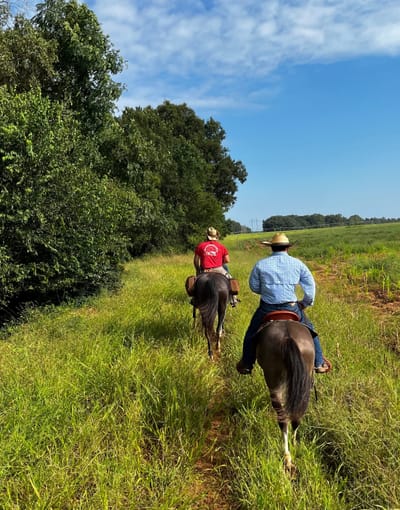
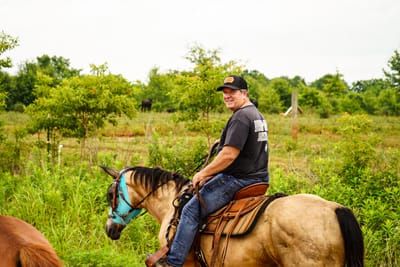
Trail Rides are by appointment only and can be purchsed as a single rider or package. Prices are per single rider and packages cannot be used by more than one person. Each ride lasts about an hour. Longer and more challenging rides can be arranged, based on experience, for an additional fee (contact to discuss pricing for longer/more challenging trail rides).
Trail Ride Prices
Single Trail Ride - $75.00
Two Trail Rides - $ 125.00
Three Trail Rides - $175.00
Events
Arena and Obstacle Course (Coming Soon)
Contact
- 2720 Fleming Road, Albany, GA, USA
- +1-5625374935
- Wendy@rideandroamequine.com
- By Appointment Only
PLEASE FEEL FREE TO TEXT ME
